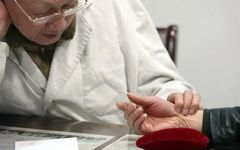Yin refers to the moisture present in various tissues of the body. The term deficiency indicates insufficiency. Therefore, lung yin deficiency refers to insufficient lung fluids, kidney yin deficiency indicates a lack of kidney essence, heart yin deficiency signifies inadequate heart fluids, liver yin deficiency denotes insufficient liver fluids, and spleen yin deficiency refers to a lack of spleen fluids.
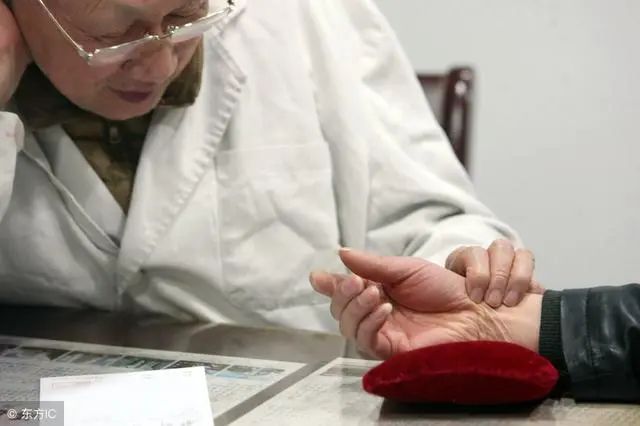
Symptoms of Yin Deficiency in Various Body Parts
Facial Area: Redness and flushed cheeks.
Head: Dizziness and headaches.
Ears: Tinnitus (if yin deficiency leads to rising fire).
Eyes: Dizziness, blurred vision, and red eyes.
Mouth: Dry mouth, thirst, hemoptysis, blood-tinged saliva, vomiting.
Nose: Dryness, nasal congestion, heat-like breath, epistaxis.
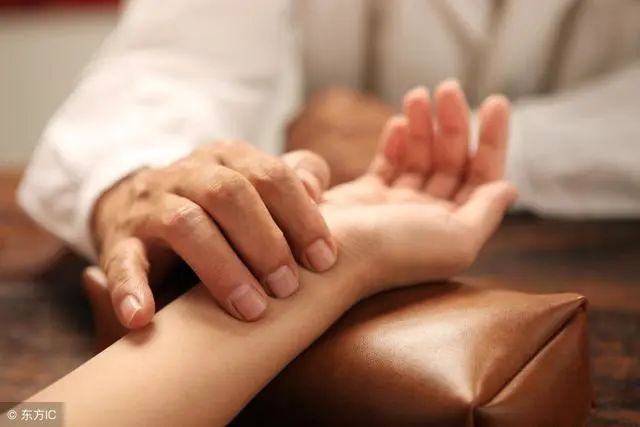
Teeth: Loose teeth and gum bleeding.
Tongue: Dry tongue, tongue pain, and bleeding.
Chest and Abdomen: Chest fullness, internal heat sensation, abdominal distension (as noted by Zhongchun: spleen deficiency leads to fullness, worse at night, indicating spleen yin deficiency).
Throat: Dry and painful throat, loss of voice, throat ulcers.
Genital Area: Hematuria, urinary obstruction or pain, nocturnal emissions in men, amenorrhea and pain in women.
Lower Back: Pain in the lumbar spine.
Limbs: Soreness in the legs and shins, dry heat in the soles, heel pain, heat in the palms and soles, dry and brittle nails.
Rectal Area: Constipation, blood in stool, diarrhea.
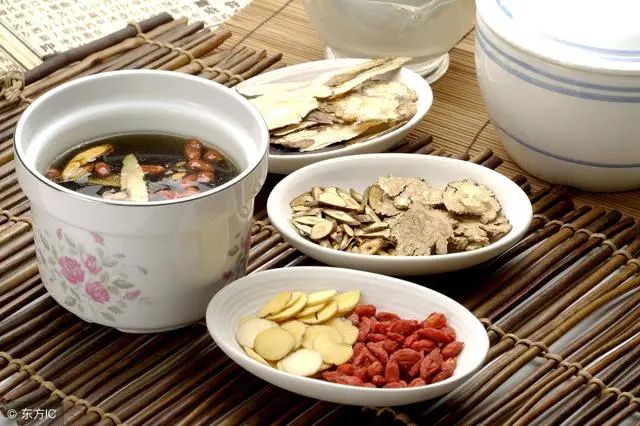
Skin: Night sweats, dry and rough skin.
Hair: Hair loss and abnormal hair growth.
Diet: Lack of taste in food, increased appetite.
Muscles and Bones: Night sweats, widespread muscle and joint pain, or pain resembling fractures.
Sleep: Insomnia.
Respiration: Reversed qi, qi stagnation, shortness of breath, phlegm cough, dry cough, hemoptysis.
Common Symptoms of Kidney Yin Deficiency
(1) Dry heat in the soles of the feet.
(2) Nocturnal emissions.
(3) Soreness in the lumbar spine and legs.
(4) Tinnitus.
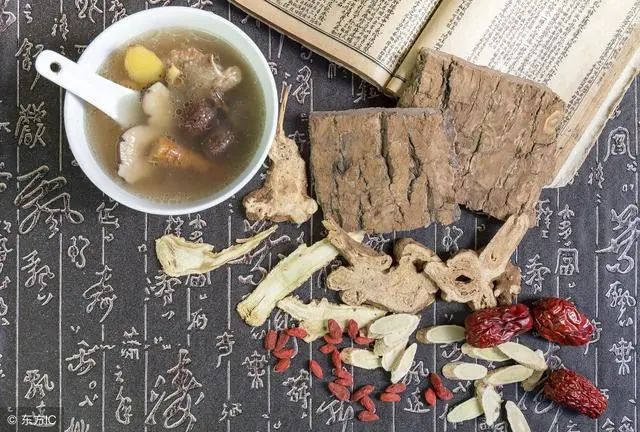
(5) Urinary obstruction.
(6) Heel pain.
Medicinal Herbs for Yin Deficiency
(1) Herbs for Lung Yin Deficiency
Mai Dong (Ophiopogon japonicus): Nourishes lung yin, moistens dryness, clears lung heat.
Tian Dong (Asparagus cochinchinensis): Nourishes lung yin, moistens dryness, clears lung heat.
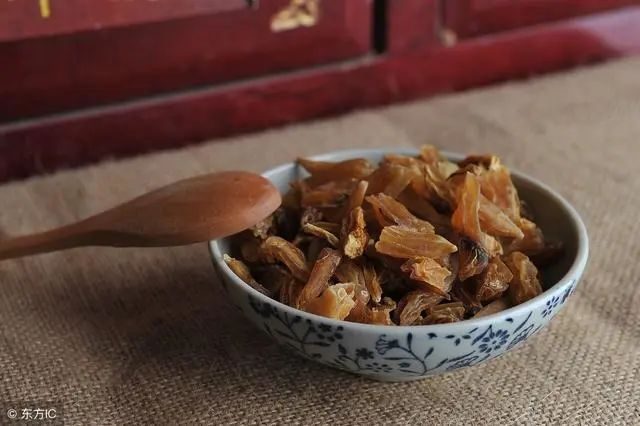
Chuan Bei (Fritillaria cirrhosa): Can be used for phlegm with turbid white foam; not suitable for clear phlegm.
Bai He (Lilium): Used for cough; fresh white flowers are better.
Sha Shen (Glehnia littoralis): Nourishes lung yin.
Bo He (Mentha haplocalyx): Disperses heat and clears the lungs; used for slight wind-heat.
(2) Herbs for Kidney Yin Deficiency
Sheng Di (Rehmannia glutinosa): Nourishes yin and cools the blood; can be used in cases of heat, but not for those with poor appetite and diarrhea.
Shu Di (Rehmannia glutinosa, cooked): Nourishes the kidneys and benefits yin; this is a key herb for kidney yin deficiency, effective for essence, marrow, and blood deficiency.
Nu Zhen Zi (Ligustrum lucidum): Suitable for kidney yin deficiency with heat; prolonged use may cause abdominal pain and diarrhea.
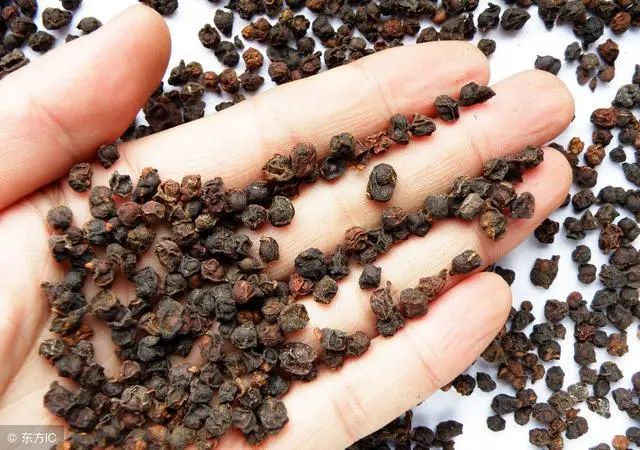
Gou Qi Zi (Lycium barbarum), Du Zhong (Eucommia ulmoides): Treats kidney deficiency and lumbar pain.
Shan Yao (Dioscorea opposita): A yin-nourishing herb; can be used for essence instability, excessive sweating, and urinary incontinence.
(3) Herbs for Spleen Yin Deficiency
Fu Ling (Poria cocos): Can be used for loose stools and reduced urination.
Sheng Shan Yao (Dioscorea opposita, raw): Nourishes the spleen, lungs, and kidneys.
Sheng Bai Zhu (Atractylodes macrocephala, raw): A key herb for nourishing the spleen.
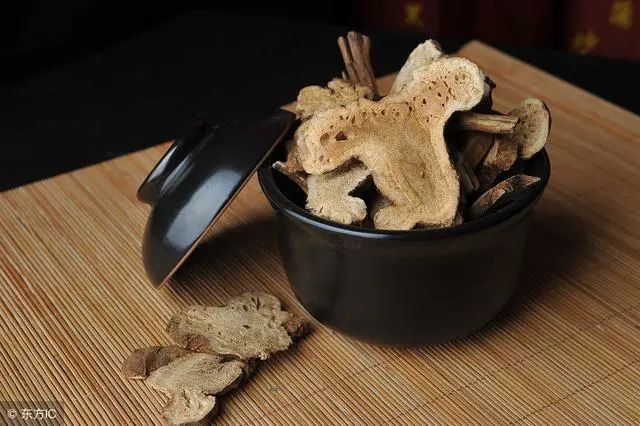
Yi Yi Ren (Coix lacryma-jobi), Lian Rou (Lotus seed), Bian Dou (Hyacinth bean): Can be used for those with diarrhea.
Shi Hu (Dendrobium): Suitable for those with internal or muscular heat deficiency.
Note: Some text and images in this article are sourced from the internet. The purpose of sharing this article is to disseminate more information. If there are any errors in source attribution or infringement of your legal rights, please notify us immediately, and we will promptly delete it and apologize.

For excessive internal damp-heat, consider using these two Chinese herbs to easily eliminate damp-heat.
Here are some recommended methods to enhance your yang energy!
For insufficient yang energy and spleen cold body: Nourish your yang energy directly with this method.


